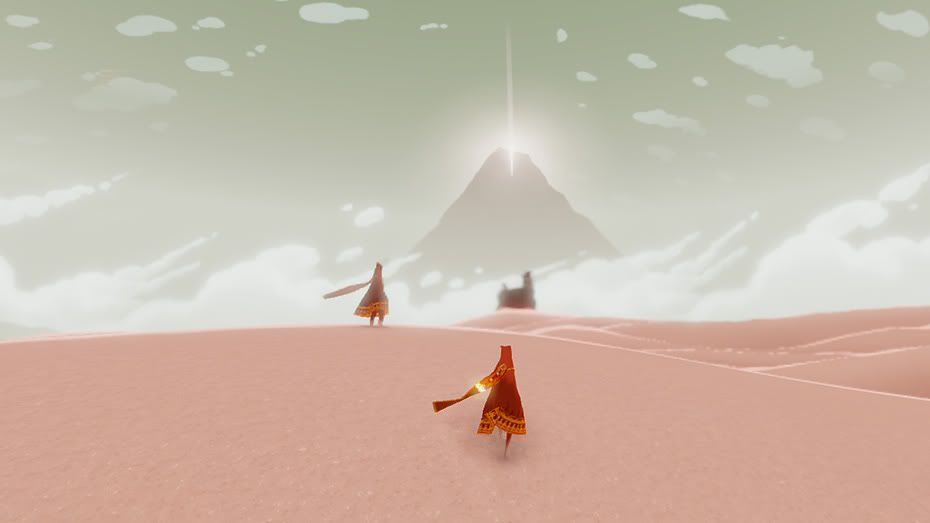This post has not been edited by the GamesBeat staff. Opinions by GamesBeat community writers do not necessarily reflect those of the staff.

Journey was the first release in a long time that really refreshed my outlook on the entire medium.
When I first heard about it, I dismissed it as another "artsy fartsy" game. But the most brilliant part about Journey was that it took only about two hours to finish. It is a game that I can put in front of anyone, and he can realistically complete its main vision. As opposed to something like Skyrim — while great in its own ways — that will take dozens of hours for a player to get a whole experience.
A game being many hours long can lead to many shortcomings. The narrative can suffer when developers have to stretch out a story too far. Idiosyncrasies can become annoying, tarnishing the overall feelings toward the experience. That can be as small as the menu system, but bumping up against anything for hours on end is not pleasant. Filler content has always been a problem. Repeating an action one too many times can sour how the rest of the game feels. Most importantly, even if the story worth seeing to its end, many players just won't make it there in a 60-hour title.
Uncharted 3 is a great example of developers stretching out narrative needlessly. The entire pirate sequence felt like a major diversion and took out so much momentum to the plot. Why was it in there? Because we have expectations as to how long a game should be even if some of that time is useless and detrimental to the story.
Many games' mechanics or menus have started to grate on me over time, leading me to retroactively feel negatively toward those elements. In a shorter experience, those elements might not be as ancillary to the overall playthrough.
Alan Wake is perfect example of this. I loved the concept, characters, story, atmosphere and even some of the gameplay of Alan Wake, but because of its length, the gameplay started to irritate me, which led me to resent the whole thing. Alan Wake's American Nightmare, on the other hand, didn't suffer as much as the original title. While American Nightmare didn't exactly hit the nail on the head, it delivered a complete story in only a few hours — just enough time not to take too much exception to its weaker elements.
Another advantage you'd see from shorter completion time would be that players would actually finish the game. I really don't think that Portal would be as large of a phenomenon if it was 30 hours long. You can arguably see what that result is in Portal 2, which was the best game of 2011 but didn't receive as much buzz as the original — likely because not as many people finished it.

In this mostly anecdotal evidence, you can see that a large majority of gamers never finish what they play. Only 55 percent of players finished Mass Effect, 56 percent finished Halo: Reach, 31 percent finished Grand Theft Auto IV, and 26 percent finished Dead Rising. Not exactly stone cold facts, but it is enough to show that games could benefit from a shorter and more focused experience.
Few concepts can be stretched over many hours, so why force it? Games like Skyrim lend themselves very well to 100-hour playthroughs, but not everything needs to be Skyrim. Just like every movie doesn't need to be a three-and-a-half-hour epic.
I rarely go back to games — even ones I loved. I simply don't have the time, and playing for just a few hours in some games is meaningless. I did, however, play through Journey about five times. Like a good movie, I can come back to a short title like Journey in a few months to a year later, and in about an hour, I can get a complete play experience. I would have liked to go back to games like Resident Evil 4 or anything in the Splinter Cell series, but the time commitment is just too high.
What I really hope to get across here is that while many games can and should be dozens of hours long, two-hour titles should be given just as much merit and attention. I believe shorter experiences can really push story to the forefront, which is something that is sorely missing in most games.
This interactive medium is rich with potential for storytelling. Maybe developers just need to look at things from a different angle to truly take advantage of that.
